Estimated reading time: 13 Min
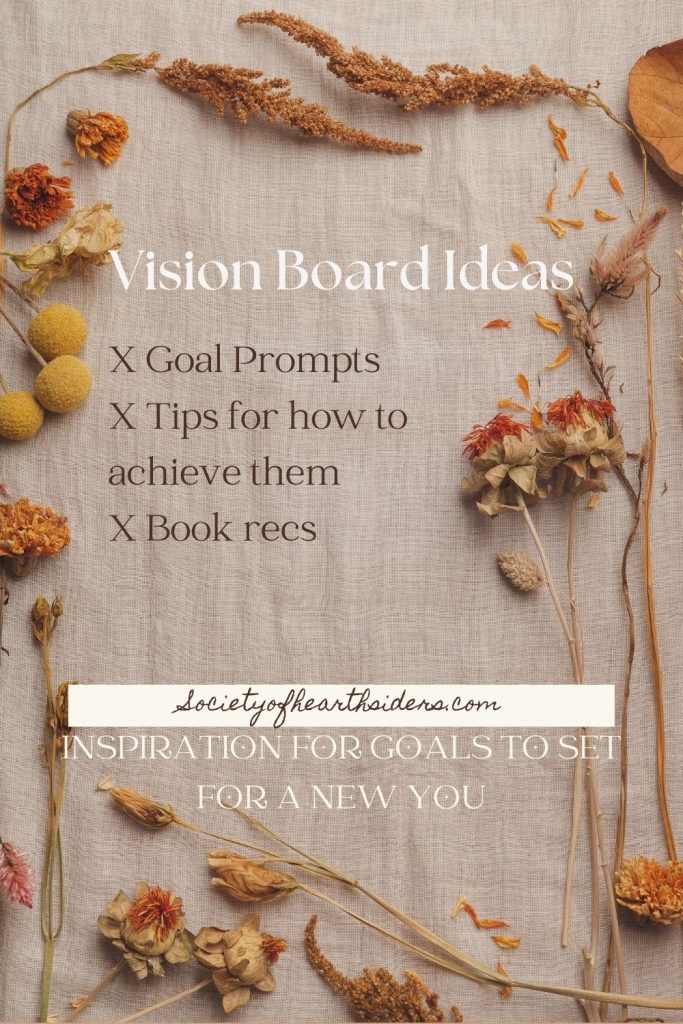
It’s never too late to change your life.
So, if you are looking for new beginning – or even just small improvements – then this post is handmade for you.
I’ve written 11 life areas and subcategories to help you set goals, collected a short list of tips to achieve the goals, and also included some helpful resources for further reading.
So please, feel free to grab some water – and let’s get started on this fresh start together!
If you woke up tomorrow, and you could pick one area of life that’d drastically improved overnight, what would it be?
General To-Do’s And Lifeskills

Let’s begin with general To-Do’s; those procrastination-prone tasks that just clutter your mind and space.
There is no shame in not knowing how to organise and declutter your space (as well as crafting a sustainable routine to stay on top of maintenance tasks). No baby wakes up with the sudden urge and skill to clean their room; it’s something we learn. And if we haven’t, then rest assured that it is a skill to be practised.
If you desire a restart in your life; a great first task is to get rid of the old, and to release all those to-do’s that’s been cluttering the back of your mind.
Inspiration for Procrastination-prone tasks:
- Decluttering and organizing your space (home, digital life, wardrobe)
- Fixing or maintaining something in your home or car
- Donate, throw away or mend clutter in your home (clothes, books, drawers, etc)
- Completing a project you’ve been procrastinating on
- Taking care of overdue health appointments (dentist, check-ups, etc.)
- Setting up important documents (passport, will, insurance)
- Decluttering/organizing space, pictures or files on your electronics (phone, computer, etc)
- Declutter contacts, emails and make important phonecalls
- Declutter/organize your make-up, hygiene products etc.
- Learning a lifeskill: sewing, woodwork, cooking, etc.
If you are struggling with organization, I recommend the book “Life-changing magic of tidying up: The Japanese art of decluttering and organizing by Marie Kondo (or simply watch her Netflix series).
Here are some tips to achieve the goals above:
- If it takes less than 5 minutes, do it right away. Sometimes, the longer we procrastinate a task, the more overwhelming it seems. Consider adding a rule of thumb; if it takes less than 5 minutes, do it right away.
- Romanticise the task. Your brain is gullible; if you try to convince it that something is fun, chances are it will seem bearable. Reimagine the task; make it cozy, make it aesthetic, dramatize it and pretend to be in a movie whilst doing it. Your brain will love you for it, and your productivity will skyrocket!
- Be proud of what you’ve done, regardless of how small it seems. I recommend the done-it list. Which is essencially a list in which you write up everything good you do, the moment after you’ve done it. Give yourself a mental pat on the back, or even a tangible reward, for going in the right direction.
- Set aside a short amount of time to clean everyday. If you are like me, and struggle to put things away, I suggest trying to set a short amount of time everyday to do surface-level cleaning. Just to keep clutter from piling up. You’ll be amazed at what 10-20 minutes daily can do for you.
Self-Concept
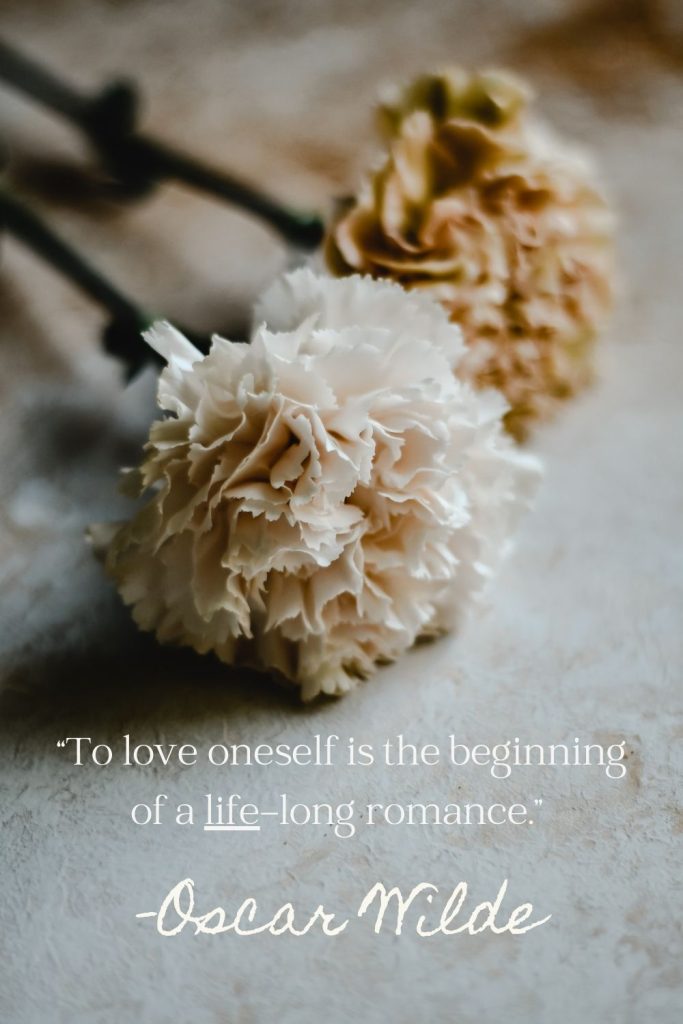
What is a self-concept?
Your identity, or self-concept is the the collection of beliefs, thoughts and emotions you have regarding yourself.
Because I’m currently a psychology student, I will reference my textbook on this one. Humans, according to one branch of psychology, have a need for self-consistency. When you believe something about yourself, your mind will be wired to look for validation that this self concept is accurate (it dosen’t matter if it’s positive or negative). (Holt, 2024, P 628).
So if you believe that you are unworthy, bad or any other adjectives you’ve assigned yourself – your brain will not only be more attuned to situations that confirm this, but also filter out any information that is incongruent with this belief.
In simple terms; what you believe is what you will become.
To work on yourself, and to create a healthy, kind relationship with yourself – is the key to all self improvement, weather that be based in modern psychology, common sense or spiritual practice.
Healing generational wounds, making kinder decisions for yourself, and getting to know the strange being you are are some of the greatest projects you can undertake.
Goal ideas for Self-Concept:
- Healing childhood wounds and limiting beliefs
- Journaling / become self aware through journal prompts
- Question limiting beliefs
- Developing an abundance mindset (as opposed to scarcity mindset)
- Practicing radical self-acceptance and self-compassion
- Overcoming fear of judgment or rejection
- Stepping into your “higher self” identity
- Embracing and integrating all aspects of yourself (shadow work)
- Question how your current self-concept serves, and does not serve, you.
Tips for how to improve your Self-Concept:
- Morning Pages. This is a concept I took from the book Arist’s Way by Julia Cameron (a book I highly recommend for anyone beginning their creative journey and wanting to unleash their inner artist or who wants to learn shadow work). You write three pages every morning. You are not allowed to pause; you are not allowed to edit or pause what you say. It’s a brain dump, where you admit to every single thought that enters your mind. You have no idea how liberating it is to put things on the page. And you have no idea how obvious things become when you can observe them outside your head.
- Become aware of your emotions and practice identify the cause of them. This is a skill to be practiced; don’t fret if you can’t identify your whys just yet. Begin by identifying the sensations in your body without trying to categorize them, then move on to trying to pinpoint what the emotion is. Then, when you’re becoming more in tune with your emotional body, put a hand over your heart and ask, “why do I feel this way?” Don’t push the answer or try to figure it out – pose the question and observe the instinctive thoughts, images or sensations that pop into your head organically.
- Reasearch internal/external locus of control. This is essentially the concept of self-agency. Do you take responsibility for your life and believe that your actions cause events in your life – or do you relent your power to luck or a higher power? And at what expense? To have an internal locus of control is to know that your actions will yield desired results. To have an external locus of control means to not believe you have agency and to blame/credit fate, luck, or a higher power or system for the things that happen in your life. Research (Hock, 2015, p 211) shows that having an internal locus of control is beneficial for good health, habits and success. (Note: if you wish to purchase Hock’s book, I suggest buying second hand or downloading it online since the book is relatively small for such a price – but the link is still there for you to get your information).
- Self-validating affirmations. Research validating affirmations and ways to reframe your thoughts to be a bit kinder. I’m a big agent for feeling your emotions fully – but reframing I am useless to right now, I feel rejected, and that’s ok will only serve you. Validate your experiences, thoughts and emotions. Ask yourself How do they serve you?
There are so many lovely people on youtube that could help you to create a healthier self-concept, including Teal Swan, Tam Kaur and Leeor Alexandra ex, ex.
Well-Being.
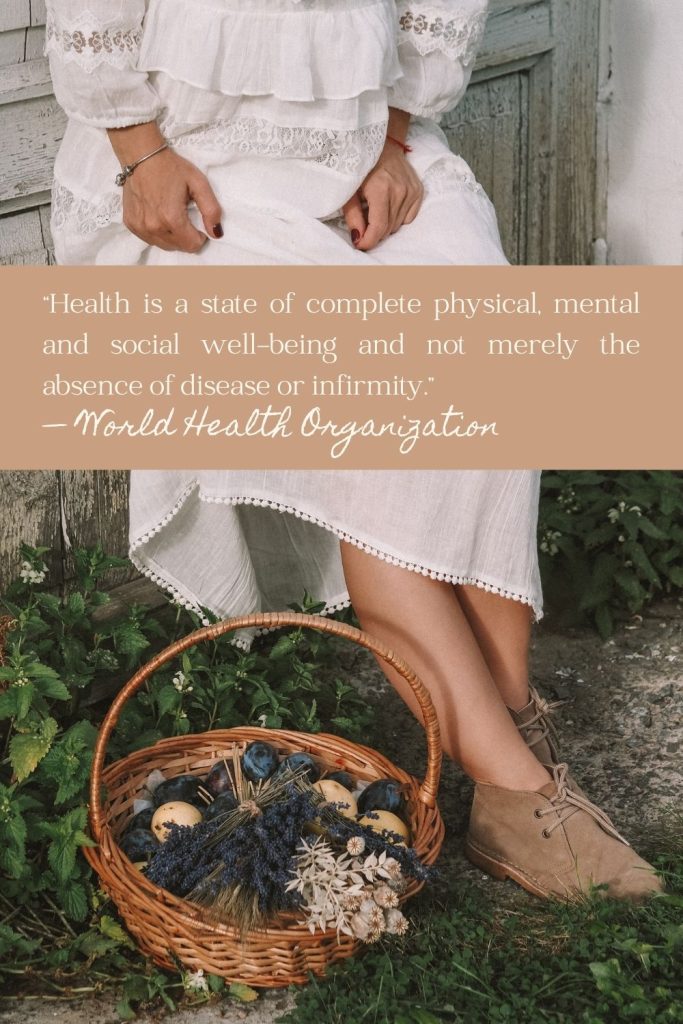
Healing the Relationship with Your Body
But most importantly; when considering goals for health – learn to listen to your body.
Eat until you’re pleasantly full, exercise in ways that are fun for you, and ensure that when you are healing your body, you do so from a place of friendship.
Don’t start a war with your body – because it’s a battle you are sure to loose.
One thing is for sure: your body loves you.
And if you don’t care for yourself – your body will ensure you care for it in not-so-pleasant ways. Don’t let it get to that point.
Goal Ideas for Health:
- Creating and sticking to a joy-filled morning or night routine
- Setting up a healthy sleep scedule (8+ hours of sleep).
- Staying hydrated
- Learning more about nutrition: What you need, symptoms of common deficiencies etc.
- Mindful eating (80% rule) – practice eating until you are neither stuffed or hungry, lagom, as we swedish people would say it.
- Habit of walking more, or moving more in your day-to-day (hot girl walks). Just 30 minutes of walking a day has massive health-benefits.
- Finding a form of exercise that you genuinely enjoy.
- Daily gratitude practice or keeping a happiness journal (or a done it journal)
Resource Recommendations:
For Sleeping better: Check out Huberman Lab’s free podcast on Youtube for more information on how to get better sleep through neuroscience. Huberman is a proffessor, has the most soothing voice I’ve ever had the fortune of hearing – and teaches us neuroscience for self improvement for free.
This one has a lot of books on the topic. Some of my favourite are:
- The 12-week year by Brian P. Moran and Michael Lennington. The premise of this book is “get more done in 12 weeks than others do in twelve months”, and quite honestly – reimagining the year and periodizing my goals has been a life-changer.
- Atomic Habits by James Clear. I know, I know. It’s popular, and you’ve heard of it before. Atomic Habits is a great starting point for learning the skill that no one taught you, but that everyone just expected you to know; effectively building new habits.
- 4 Hour Workweek by Timothy Ferriss – This deconstructs the idea that you have to trade time for money. And I do believe many people are tired of the old system of working for a third of their life, for a job that barely pays enough for necessity – let alone allows you the freedom to create, connect and rest. The four our workweek opens your mind for alternate ways to work; things like trading efficiency and knowledge for money, instead of your precious time.
Milestones
As someone raised by the Sims – I love my milestones when achieving goals. What do you have to do to “level up” in your life?
Goal Ideas for Milestones:
- Buying your first car or upgrading to a dream car (getting a driver’s license)
- Traveling to a bucket-list destination
- Publishing a book, starting a business, or launching a creative project
- Achieving a personal milestone (running a mrathon, learning a language fluently)
- Reaching a sub-goal in the direction of your dream life.
- Moving house (getting your first apartment, etc)
- Graduation, passing finals or going back to school
Social life
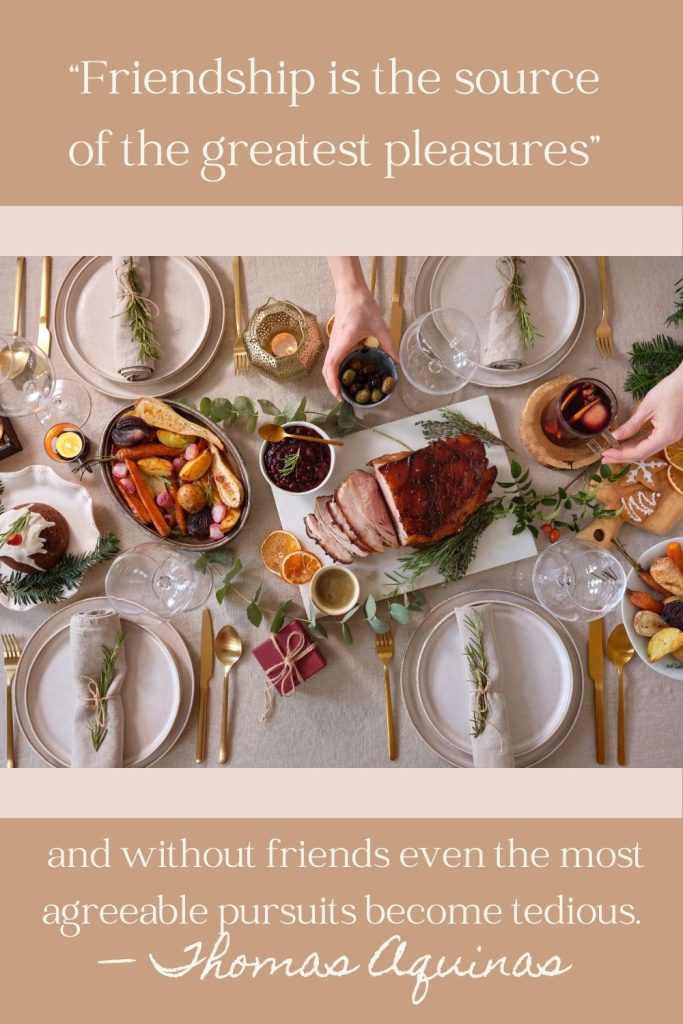
Belonging is a basic Human Need
Once again looking at my psychology textbooks, the need for relatedness, in the humanist branch of psychology, is essencial for well-being and prosperity. Although I’m happily an advokate for self-love, it’s ok to need others, and its ok to want validation from others.
People who are content with their social lives (note, content—the definition varies between individuals) usually experience a stronger sense of identity and meaning in their lives, have decreased levels of stress, appreciate positive events in their lives to a greater extent, and experience a general sense of well-being in their lives (Holt, 2024, P582).
And this is coming from someone raised by a strong-woman-who-needs-no-one sort of mother. Although I’ve always valued my autonomy (perhaps a bit excessively) in recent years, I’ve come to accept how important relationships are in my life. And I want to encourage more people to set goals to nurture community and their sense of belonging.
Goals for Friendship, belonging and relatedness
- Making a conscious effort to deepen existing friendships
- Hosting regular gatherings, game nights, or dinner parties
- Joining a club, class, or online community to meet like-minded people
- Strengthening communication skill
- Practicing charisma
- Overcoming social anxiety or public speaking fears
How to create healthy friendships:
- Practice healthy conflict resolution (Pro tip: Practice honesty and vounerability)
- The key to being likable is to make the other person feel good about themselves in your presence (in a genuine fasion)
- Focus on being interested, not interesting. Practice being present, and listen to the other person without thinking about what you’ll say next)
Romantic Relationships
A friendly note: Never feel pressured to enter a romantic relationship before you are ready, there is nothing wrong with being single. Pick a partner that’s nurturing to you. It’s better to be single than with the wrong person, I assure you.
Also, pick someone you’re compatible with. If you can’t be yourself, and also have the other person, you are simply not compatible.
Goal Ideas for Romantic Relationships
- Becoming more emotionally available and vulnerable in relationships
- Identifying and breaking toxic relationship patterns
- Learning about the love languages
- Learning healthy communication and conflict resolution
- Planning romantic experiences or date ideas for yourself/partner
- Working on trust issues and developing secure attachment
- Setting healthy boundaries
- Going on a specific number of dates
- Healing your attachment style
- Experimenting with sexual orientation and/or sexual expression
Purpose

What is your Purpose and How do you Find it?
You could define “purpose” in different ways.
Personally, I believe the pursuit of happiness is the true purpose of humankind.
(If you believe in manifestation, this is accurate because making decisions based on joy will inevitably manifest more of it.)
However, I compiled a list of what purpose may mean for you below.
- To Pursue Happiness
- To Feel Competent (mastery of a skill)
- To Practice Free Will (autonomy, freedom and authenticity)
- To bring value to your community.
- To live in alignment with your values.
- To positively belong with a group.
- To leave a legacy (something to be remembered by)
Goals Related to Purpose
- Identifying and developing your “unique gift” to the world
- Finding a cause or movement you deeply care about and contributing to it
- Exploring spirituality and existential questions
- Writing a personal mission statement
- Defining your core values and aligning your life with them
I recommend reasearching the term “ikigai” if you want a concise framework to take inspiration from.
Money and Career

Career Advancement
Your career is something you’ll spend majority of your time on. The list below are for those of us who needs a rapid change. However, before continuing with the list, I would like to add a tidbit for the sensitive souls out there who dreads the modern workculture.
Changing Workcultures (for the sensitive people)
Personally, I experience my career as closely linked with my purpose. I want to waste my time on passion, hone in on my hyperfixations, and transmute them into ways to bring value to the people around me. I want to spend my time mastering the skills that I genuinely enjoy doing, bringing value to people in exchange for money. It’s one of the reasons I’m writing this blog – it’s a way for me to express myself, and to provide value in ways that lights me up.
You can do it too, I ensure you.
Our work culture is changing rapidly. And if you’re like me, you’re somewhere between ashamed that you don’t fit into the old work culture (in fear of being viewed as lazy or unmotivated) and dreading wasting time working a job in which you are replaceable, overworked, and drained.
But why should you feel ashamed for wanting time and energy to spend on health, family and passion? Aren’t you tired of working only for convenience – for a job that barely pays you enough to live, let alone gives you freedom?
With rising prices, new technology that can handle automized tasks and a heightened desire for spirituality and purpose (as opposed to the convenience and hustle culture created after the War) we are challenged to create a new form of workculture.
A workculture where we trade passion, a human presence, creativity, knowledge, and inspiration for money – not our precious time.
Goal-Ideas for Career:
- Finding a mentor or becoming a mentor
- Begining a passion project or side-hustle
- Taking steps toward your dream career
- Improving leadership and management skills
- Building a personal brand (blog, social media presence, networking)
- Transitioning into a career that aligns with your values
- Setting work boundaries to prevent burnout
- Setting up a sustainable system of productivity that nurtures your mental health, as well as boosts your effiency
Financial Health
To have money is to have time, freedom, security and health. And it’s a privelige to spend money on things that not only brings us joy, but that aids the financial and spiritual health of independent buissness owners – as well as being able to afford sustainable and ethical options when we shop.
Just as I said above; our workculture is changing.
Don’t settle for listening to your parents’ guidance when it comes to money, or even school. Although they may mean well, the economy and accessability to money has changed rapidly over the last few years.
Ensure that you are educated on the modern economy and become financially literate. There’s more to wealth than getting a high-paying job in modern society.
Goal deas for Financial Health:
- Paying off debt or student loans
- Creating multiple streams of income
- Saving for an emergency fund, travel fund, or dream home
- Learning about wealth-building strategies
- Become financially literate
- Negotiating for a promotion
- Setting up a buissness model that allows a portion of your revenue to become passive income
- Building assets and investing
- Donating a percentage of your income to a cause you care about
- Work on limiting beliefs regarding money (abundance vs scarcity mindset)
Three giants of well-known financial literacy books:
Rich Dad, Poor Dad by Robert K. Kiyosaki – reshapes what wealth means, the difference between an asset and liability, and how to make money work for you.
Psychology of Money by Morgan Housel – reimagine your view of money to help you to gain an abundance mindset.
Girls That Invest by Simran Kaur – an indepth, comprehensive guide to any beginner to investing – especially to women, who has historically been excluded from the world of investing until today.
Mastery
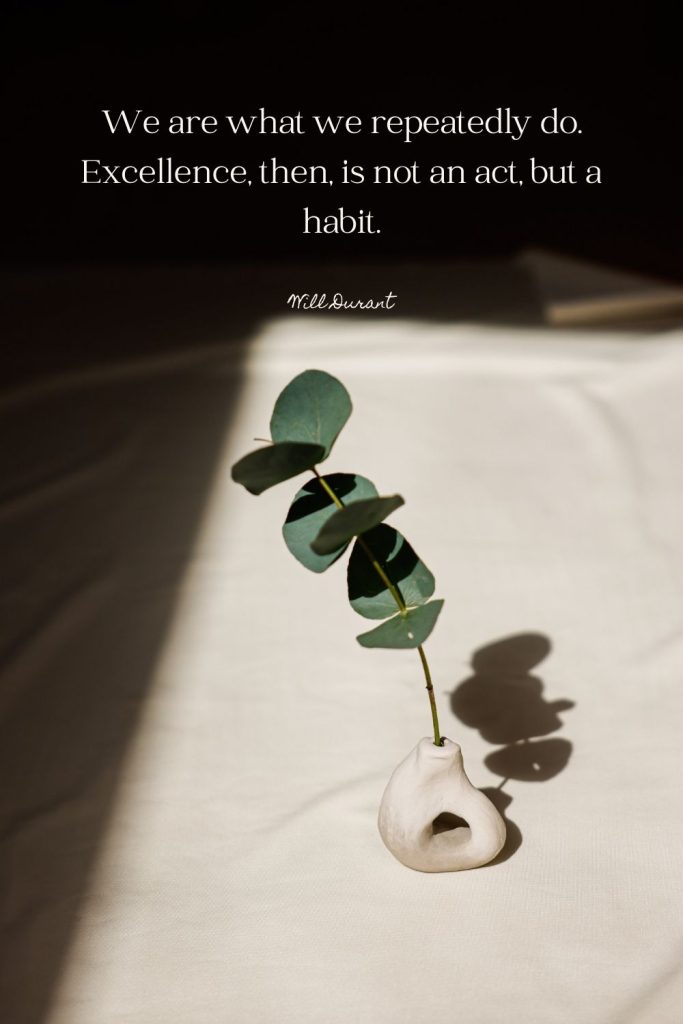
To be Good at Something
Competence is a basic human desire. To be good at something, to master a new skill – or a hobby that you just enjoy advancing in. Mastery could be tied to your career, and it could be something that you do entirely for your own enjoyment. It’s up to you.
But everyone should have the ability to say they are proud to know something.
Goal Ideas for Mastery:
- Deepening expertise in a field or industry
- Learning a new creative skill (painting, music, writing)
- Picking up a new hobby
- Developing a skill that’s tied to your career or purpose
- Becoming fluent in another language
- Mastering a physical skill (surfing, rock climbing, archery)
- Developing discipline and consistency in skill-building
Tips on how to Achieve Thease Goals:
- Being skilled is just doing a lot of simple things at the same time. Break down your desired skill into simple, actionable tasks and hyperfocus on them for a week or so. If you’re an author like me, then focus on dialouge one week, then move on to descriptions or how to communicate emotion the other week. Break the difficult skill into smaller, actionable, attainable tasks and focus on them, to avoid being overwhelmed.
- Change your social media algorithm to include inspirational and educational content in your chosen skill. Surround yourself both with reminders and community to 1: stay on track with your goal, and 2; to learn through bite-sized content (especially in the beginning when the overload of information can be time-consuming).
- Release the word “bad” and “good” from your dictionary. Praise yourself when you can recognize that something you produce feels off. It means that you have successfully identified that something isn’t working. Don’t stop there; troubleshoot and write a list of potential problems makes your project feel off – then rewrite those issues into small, actionable, and attainable tasks to hyperfocus on and learn (see bullepoint 1).
Thank You For Reading!
Affiliate Links in this Post.
This blog post contains affiliate links. This means that I get a small percentage when you purchase a book through the links in this post.
This is a way for me to help you discover reasources for further reading (that are more reliable than a stranger on the internet) and to allow me to write this blog so it’s free for anyone to read it.
I recommend only products that I find have helped me – and I try to be as transperant as possible with them.
For example, like I said in the post, I recommend not paying full money for Hocks—even if it’s one of my coursebooks (I’m studying psychology right now at a university in Sweden)—because it’s rather small for its price. But you can get the date, title, author, etc. from the Amazon link, so go ahead if you have money to spend, because it’s an interesting read.
- How to Find Purpose In Life 101
- How To Get And Stay Motivated In 3 Seconds
- Worldbuilding 101: How to Write Side-Characters
- How I quit people pleasing (and how you can, too)
- Fantasy Worldbuilding: How Does Power Work?


Leave a Reply